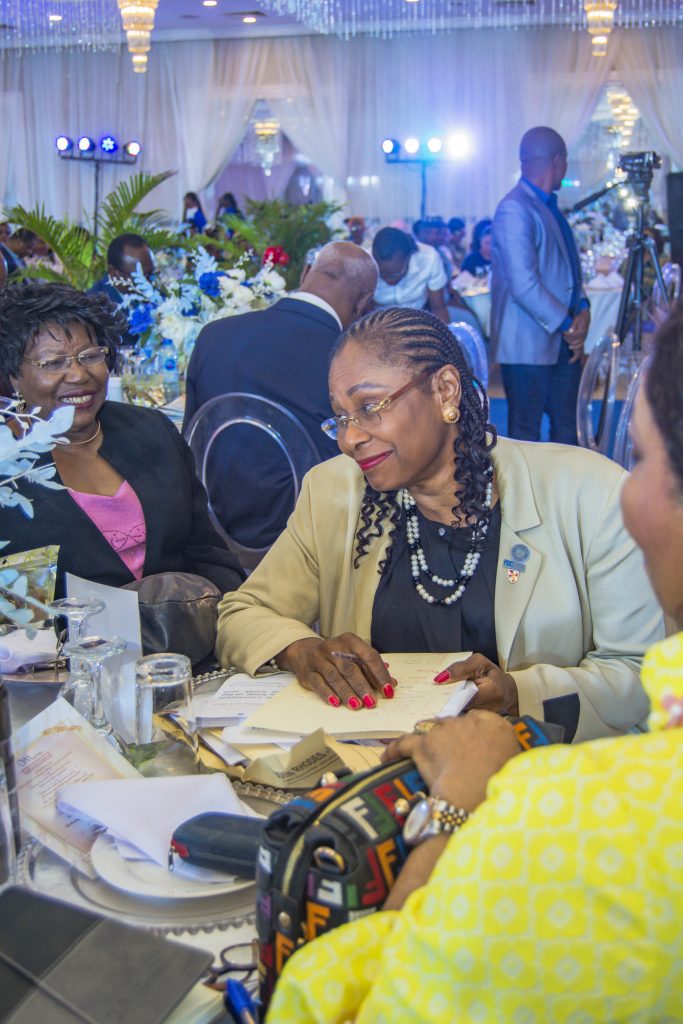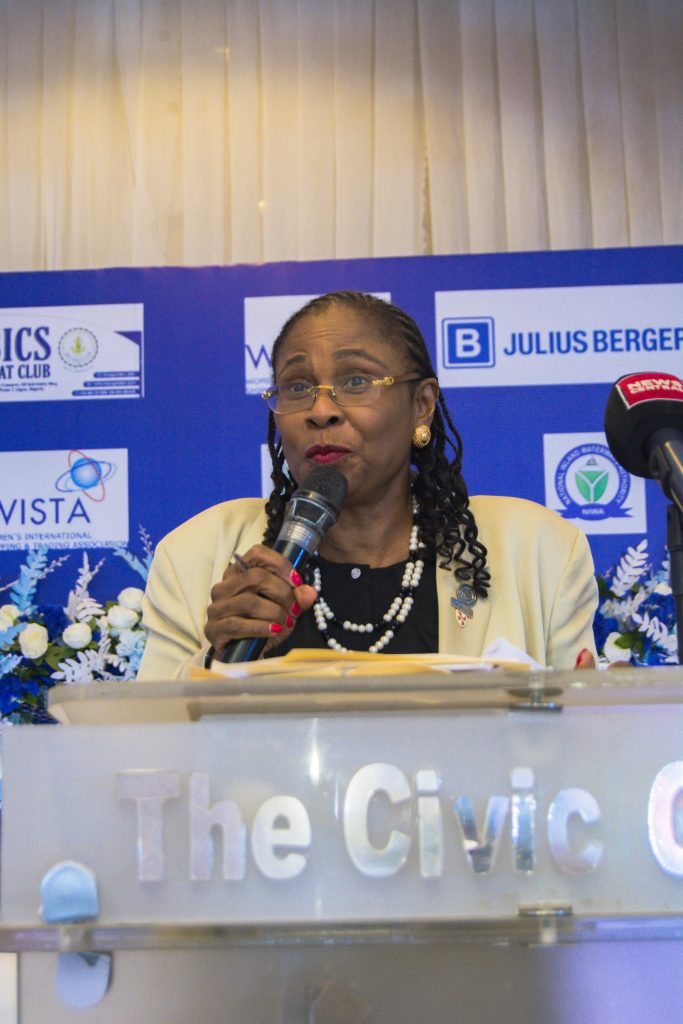In a groundbreaking presentation at the Women’s International Shipping and Trading Association (WISTA) Nigeria’s annual business luncheon, Doyin Rhodes-Vivour (SAN), Managing Partner of Doyin Rhodes – Vivour & Co, has laid out a comprehensive blueprint for revitalizing and repositioning Nigeria’s maritime industry.

Rhodes-Vivour’s address, delivered to a gathering of industry leaders, government officials, and maritime experts, highlighted the untapped potential of Nigeria’s blue economy, estimated at a staggering $296 billion. Emphasizing the need for a strategic shift, she underscored the importance of moving beyond traditional maritime activities to explore new sectors.
“The blue economy provides over 31 million jobs with 40% of the world’s population living near coastal
areas. According to the estimates from the African Union (AU), the blue economy currently contributes about $300 billion to the continent’s economy. Considering the abundant marine resources in Nigeria, the Africa Blue Economy Alliance (ABEA), using the data from the Nigerian Maritime Administration and Safety Agency (NIMASA), valued the Nigeria’s untapped blue economy potential at a whopping sum of $296 billion, ” Rhodes Vivour added.
In her attention-grabbing presentation, Rhodes-Vivour identified industrial fishing and aquaculture, shipbuilding and ownership, port development and management, and seabed mining as key areas where Nigeria could leverage its extensive marine resources. Rhodes-Vivour argued that resuscitating industrial fishing and promoting aquaculture could significantly reduce Nigeria’s reliance on fish imports, creating a substantial economic impact: “Resuscitation of industrial fishing and development of aquaculture could be one of the low-hanging fruits of the blue economy that can be expeditiously explored. It has been recommended that the new Ministry of Marine and Blue Economy should take up and update the drafted Nigeria’s Fisheries Act 2014 (which establishes the Nigeria’s Fisheries Commission)to reflect the current blue economy policy objectives.”
Regarding shipbuilding, repair, and ownership, Rhodes-Vivour noted that despite Nigeria’s coastline of 853 km, the country largely depends on foreign vessels. She stressed the urgent need for policies that encourage local shipbuilding and ownership, pointing out that the global shipbuilding industry is projected to reach $229 billion by 2028.
The importance of expanding and managing ports efficiently was another focal point. Rhodes-Vivour urged the government to develop new ports to alleviate the pressure on the Lagos port, which currently handles over 90% of Nigeria’s import and export cargoes. She cited the Lekki Deep Sea Port, completed in 2022, as a positive step towards creating a network of modern ports: “The role of functioning ports in the blue economy cannot be overemphasized as it connects other maritime sectors to international trade. Thriving maritime nations have several ports that encourage international trade and economic growth. For instance, according to the U.S Coast Guard, there are approximately 360 commercial ports that serve the United States. China which also has a thriving blue economy sector boast several ports of which 7 ports are recognized as one of the world’s largest ports. Sadly none of the Nigerian ports has received any similar recognition.”

Additionally, Rhodes-Vivour delved into the emerging sectors of seabed mining and offshore wind energy. She highlighted Nigeria’s strategic mineral resources in the seabed and encouraged the deployment of technology for exploration. The potential of offshore wind energy, particularly in areas like Lagos, Ondo, Delta, Rivers, Bayelsa, and Akwa Ibom, was emphasized as a viable solution to Nigeria’s power crisis.
In the context of sustainable use of marine resources, Rhodes-Vivour addressed pressing issues such as illegal and unreported fishing, destructive fishing practices, and oil spills. She stressed the imperative of adhering to sustainable practices in line with the United Nations Sustainable Development Goal 14.
As Nigeria grapples with these challenges and opportunities, Rhodes-Vivour’s presentation at the WISTA business luncheon set a transformative agenda for the maritime industry, sparking discussions on policy reform and strategic initiatives to unleash the full potential of the nation’s blue economy.




